Welcome User
Relevance
Consult Thoracic Surgeons Online (11 doctors)
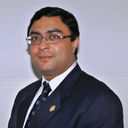
Dr Shaikat Gupta Director Surgical Onco
Surgical Oncologist
35 Years • MBBS (University Gold Medalist), MS, FRCSEd
Kolkata
Apollo Multispeciality Hospitals , Kolkata, Kolkata
(250+ Patients)

Dr. Khader Hussain
Surgical Oncologist
10 Years • MBBS, DNB (Surgical Oncology), Fellow in Thoracic Surgery
Chennai
Apollo Proton Cancer Center, Chennai
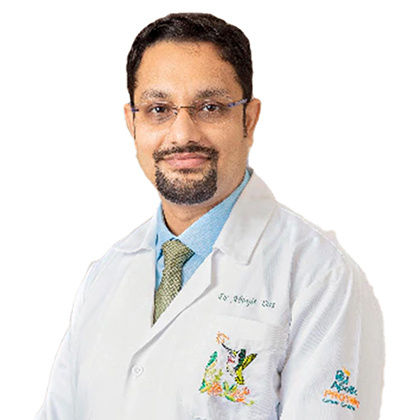
Dr. Abhijit Das
Surgical Oncologist
10 Years • MBBS MS, MCh (Surgical Oncology), Fellowship in Thoracic Oncology (SNUK, Korea), Fellowship in Advance Esophageal Surgery (NCC, Japan)
Chennai
Apollo Proton Cancer Center, Chennai
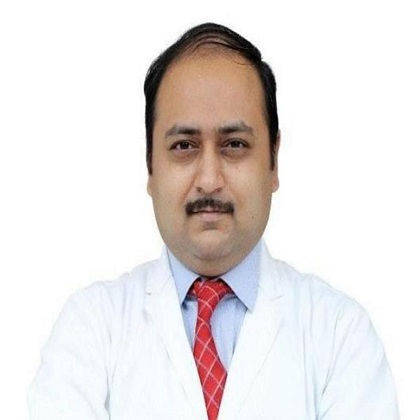
Dr Bhushan Dinkar Thombare
Thoracic Surgeon
19 Years • DNB Thoracic Surgery, DNB General Surgery
Delhi
Apollo Hospitals Indraprastha, Delhi
(75+ Patients)

Dr. Rajiv Santosham
Thoracic Surgeon
15 Years • MS, M.Ch (Thoracic Surg.)
Chennai
Apollo Hospitals Greams Road, Chennai
(25+ Patients)
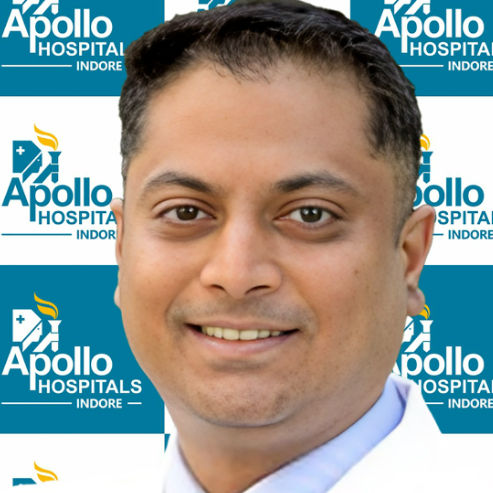
Dr. Sumit Bangeria
Thoracic Surgeon
8 Years • MS, FIAGES, DrNB- Thoracic Surgery (Gold Medalist)
Indore
Apollo Hospitals Vijay Nagar, Indore
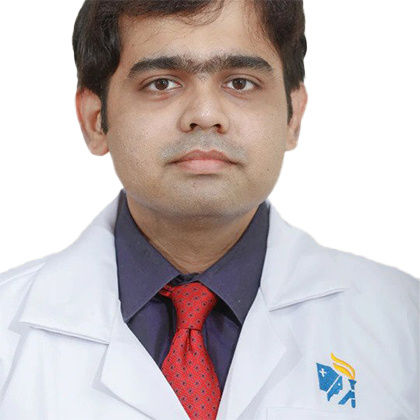
Dr. Ajay Narasimhan
Thoracic Surgeon
10 Years • MBBS, MS (General Surgery), MCh (Cardio Thoracic & Vascular Surgery)
Chennai
Apollo Hospitals Greams Road, Chennai

Dr. Thanga Saravanan
General Surgeon
7 Years • MS., M.CH
Chennai
Apollo Clinic, Valasaravakkma, Chennai
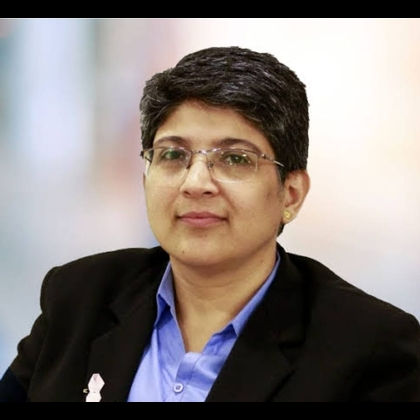
Dr Prriya Eshpuniyani
Thoracic Surgeon
20 Years • DNB Thoracic Surgery, Fellowship Surgical Oncology, Fellowship of Advanced Robotic and Innovative Surgery (FARIS), FMAS, FAIS,MNAMS
Mumbai
Apollo Hospitals CBD Belapur, Mumbai
Thoracic Surgery
Booking an appointment with a top thoracic surgeon is now easier than ever with Apollo 24|7. Our user-friendly platform allows you to schedule an online or in-person consultation with experienced thoracic surgeons at trusted hospitals and clinics. With a wide range of convenient appointment slots available, you can choose a time that suits your schedule. Our thoracic surgeons are highly skilled in diagnosing and treating various thoracic conditions, ensuring you receive the best possible care. Don't wait any longer; book your appointment with a leading thoracic surgeon at Apollo 24|7 today and take the first step towards better health.
What is Thoracic Surgery?
Thoracic surgery refers to surgical interventions on organs within the chest, including the heart, lungs, and oesophagus. This speciality is essential in healthcare due to its focus on treating critical conditions that affect the chest area.
Procedures under thoracic surgery can range from coronary artery bypass grafting to lung transplantations and surgeries to remove tumours from the thoracic cavity. The speciality is crucial for addressing life-threatening disorders and improving patients' quality of life by restoring function and relieving symptoms of diseases like lung cancer, oesophageal cancer, and heart defects.
Who is a Thoracic Surgeon?
A thoracic surgeon is a medical specialist trained to perform surgery on the chest's organs. These surgeons hold a degree in medicine followed by specialised training in general surgery and additional training in thoracic surgery.
They are skilled in managing and treating conditions such as lung cancer, heart defects, and other serious ailments affecting the thoracic organs. Thoracic surgeons work closely with other healthcare professionals to provide comprehensive care, often leading teams that handle complex medical issues requiring surgical intervention.
Their expertise is vital in planning and executing surgical strategies that improve patient outcomes in critical care scenarios.
What Does a Thoracic Surgeon Do?
A thoracic surgeon specialises in operations within the chest, encompassing the heart, lungs, and oesophagus. These professionals are pivotal in treating conditions that range from congenital defects to acquired diseases.
Surgical Procedures: Thoracic surgeons perform complex surgeries such as lung resections, heart bypasses, and oesophageal repairs. They are skilled in both open surgery and minimally invasive techniques, which help reduce recovery time and complications.
Diagnosis and Preoperative Care: Before surgery, thoracic surgeons are involved in diagnosing conditions through physical assessments and imaging technologies. They plan the surgery and prepare patients for what to expect, discussing risks and post-operative care.
Collaborative Care: These surgeons collaborate with cardiologists, pulmonologists, and other specialists to provide comprehensive care. This teamwork is essential, especially when managing patients with multiple health issues.
Postoperative Management: After surgery, thoracic surgeons monitor patients’ recovery and manage any complications. This phase is crucial for ensuring the success of the procedure and involves regular follow-ups and adjustments in treatment plans.
Research and Education: Many thoracic surgeons are also involved in research and clinical trials aiming to develop new surgical techniques and treatments. They often teach in medical schools and surgical training programs, contributing to the education of future healthcare professionals.
Through their detailed and dedicated work, thoracic surgeons play a critical role in improving patient outcomes and advancing healthcare within their speciality.
What are the Other Sub-specialities of Thoracic Surgery?
Thoracic surgery encompasses a range of sub-specialities, each focusing on different parts of the thoracic region and employing specific surgical techniques. This diversity allows specialists to address a wide array of conditions effectively. Here's a look at the various sub-specialities:
Lung Cancer Surgery Specialist: A doctor for lung cancer surgery is focused on treating lung malignancies through surgical interventions. This sub-speciality demands precision and often involves lobectomy or pneumonectomy, where part or all of a lung is removed to eliminate cancerous cells.
Oesophageal Surgery Specialist: An oesophageal surgeon specialises in surgical treatments for diseases affecting the oesophagus, such as cancer or severe gastroesophageal reflux disease. Procedures often involve removing the damaged section of the oesophagus or reconstructing it to improve functionality.
Chest Wall Surgery Specialist: Also known as a chest specialist surgeon, these experts treat abnormalities of the chest wall, such as pectus excavatum or tumours. Their work includes reconstructive surgeries to improve both function and cosmetic appearance.
Minimally Invasive Thoracic Surgery Expert: Specialists in this area use techniques that require smaller incisions, such as video-assisted thoracoscopic surgery (VATS), which leads to shorter recovery times and less pain for patients.
Tracheal Surgery Specialist: These surgeons handle conditions involving the trachea, including strictures and tracheal tumours. Procedures often aim to restore airway patency and function.
Robotic Thoracic Surgery Specialist: Utilising advanced robotic systems, these surgeons perform highly precise surgeries. The technology provides greater dexterity and control, often resulting in more effective outcomes and quicker patient recovery.
Pleural Disease Surgery Specialist: This sub-speciality involves treating diseases of the pleural cavity, including pleural effusion and mesothelioma. Techniques often involve pleurectomy or decortication to remove disease tissue or fluid.
Mediastinal Tumour Surgery Specialist: A surgeon for chest tumours focuses on removing tumours located in the mediastinum, the area between the lungs. This can include benign or malignant growths affecting various organs, such as the thymus or lymph nodes.
Each of these sub-specialities plays a vital role in thoracic care, with specialists like the lung cancer surgeon and chest cancer surgeon providing critical interventions that significantly impact patient survival and quality of life.
What are the Thoracic Surgery Examinations or Tests Performed by the Thoracic Surgeon?
Thoracic surgeons perform a variety of diagnostic tests and examinations to assess and diagnose conditions within the chest region. These tests are critical for determining the most appropriate surgical interventions.
Here are some of the most common examinations:
Chest X-Ray: This is one of the first examinations a thoracic surgeon might order. It provides images of the heart, lungs, airways, blood vessels, and the bones of the spine and chest area. Chest X-rays can help detect a range of conditions, from pneumonia to lung cancer and heart failure.
Computed Tomography (CT) Scan: A CT scan offers a more detailed look at the organs and tissues within the chest compared to a regular X-ray. It is particularly useful for diagnosing tumours, infections, and abnormalities in the chest structure.
Magnetic Resonance Imaging (MRI): MRI is used by thoracic surgeons for its superior ability to differentiate between soft tissues. This makes it excellent for assessing tumours of the chest wall, mediastinum, and sometimes, the lungs and heart.
Pulmonary Function Tests (PFTs): These tests evaluate how well the lungs are working by measuring lung volume, capacity, rates of flow, and gas exchange. This information helps in assessing the impact of lung diseases and pre-surgical function.
Endoscopic Examinations: Procedures such as bronchoscopy and thoracoscopy allow the surgeon to look inside the airways and pleural space respectively, using a camera. These are useful for biopsy procedures or to visually assess an abnormality.
Positron Emission Tomography (PET) Scan: Often used in conjunction with a CT scan, a PET scan can provide valuable information about the metabolic activity of chest lesions, helping to distinguish benign from malignant growths.
These tests form the backbone of diagnostic assessments in thoracic surgery, enabling specialists to tailor their surgical approach to each patient's specific needs. If you need such specialised assessment, you may want to book thoracic surgeon consultations to discuss potential diagnostic and treatment options.
What are the Common Conditions & Diseases that Thoracic Surgeons Treat?
Thoracic surgeons address a variety of critical conditions affecting the organs within the chest. Here are some conditions they commonly treat:
Lung Cancer: Malignant growths in lung tissue.
Coronary Artery Disease: Blockages in the heart’s arteries.
Pneumothorax: Collapsed lung due to air leakage.
Oesophageal Cancer: Cancer originating in the oesophagus.
Pleural Effusion: Excess fluid between the lungs and chest wall.
Aortic Aneurysm: Swelling of the aorta within the chest.
Mediastinal Tumours: Tumours in the area between the lungs.
Atrial Septal Defects: Holes in the wall between heart’s upper chambers.
Empyema: Accumulation of pus in the pleural space.
Pulmonary Embolism: Blockage in one of the pulmonary arteries.
Chest Wall Tumours: Benign or malignant growths on or in the chest wall.
Thoracic Outlet Syndrome: Compression at the thoracic outlet affecting nerves or blood vessels.
Tracheal Stenosis: Narrowing of the trachea.
Hiatal Hernia: Part of the stomach bulges into the chest.
Pericardial Effusion: Fluid around the heart.
These conditions can range in severity and often require complex surgical interventions to manage effectively.
Reasons to See a Thoracic Surgeon
Patients are often referred to a thoracic surgeon when experiencing symptoms that indicate severe chest conditions or when diagnosed with specific diseases requiring surgical expertise.
Key reasons include:
Persistent Chest Pain: Which might indicate heart or lung disease.
Breathing Difficulties: Often associated with lung conditions or tumours.
Abnormal Imaging Results: Such as tumours, hernias, or aneurysms identified via scans.
Cancer Diagnosis: Particularly for lung or oesophageal cancer where surgical removal is considered.
History of Heart Disease: Especially if surgical intervention is needed.
If you exhibit any of these symptoms or conditions, an online thoracic surgeon consultation might be the next step towards diagnosis and treatment.
What Types of Procedures do Thoracic Surgeons Perform?
Thoracic surgeons are trained to perform a wide range of procedures that address diseases affecting the organs in the chest area. These can be categorised into therapies and surgeries, each critical in managing different conditions.
Top Therapies:
1. Chemotherapy for Lung Cancer: Utilising chemical agents to kill cancer cells, primarily for lung cancer treatment.
2. Radiotherapy for Chest Tumours: High-energy rays used to destroy cancer cells in the thoracic region.
3. Pleurodesis: A chemical or physical treatment that obliterates the pleural space to prevent recurrent pleural effusion.
4. Thoracentesis: The removal of fluid from the pleural space to alleviate symptoms such as difficulty breathing and to diagnose conditions.
5. Bronchoscopic Laser Therapy: Using a bronchoscope equipped with a laser to remove obstructions or tumours within the airways.
Top Surgeries:
6. Lobectomy: Surgical removal of a lobe of the lung, typically for treating lung cancer.
7. Coronary Artery Bypass Graft (CABG): Creating new routes around narrowed or blocked arteries to improve blood flow to the heart.
8. Oesophagectomy: Removal of part or all of the oesophagus, usually due to cancer.
9. Pneumonectomy: Removal of an entire lung, generally in advanced cases of lung disease or cancer.
10. Video-Assisted Thoracic Surgery (VATS): A minimally invasive technique using a video camera to perform procedures inside the chest.
11. Heart Valve Repair or Replacement: Correcting or replacing heart valves that don't function properly.
12. Aortic Aneurysm Repair: Surgery to repair or replace a diseased aortic segment to prevent rupture.
13. Mediastinoscopy: A surgical procedure to examine the inside of the upper chest between and in front of the lungs.
14. Chest Wall Reconstruction: Rebuilding the chest wall to improve function and appearance after trauma or surgery for tumours.
15. Tracheal Resection and Reconstruction: Removing a section of the trachea to treat severe tracheal stenosis or tumours, followed by reconstruction.
These procedures, ranging from minimally invasive to major surgeries, underscore the comprehensive capabilities of thoracic surgeons. Considering the complexity and risks associated with these surgeries, the thoracic surgeon fee can vary significantly based on the type of procedure, the surgeon’s expertise, and the facility’s location.
Why Choose an Apollo 24|7 Thoracic Surgeon?
Choosing a thoracic surgeon at Apollo 24|7 offers several advantages. Our thoracic surgeons are highly qualified and experienced in managing a wide range of thoracic conditions. They are trained in the latest surgical techniques, including minimally invasive procedures like VATS.
Patients receive personalised care tailored to their specific health needs, including comprehensive evaluations and treatment plans that address individual patient concerns.
Apollo 24|7 offers access to advanced treatment options and state-of-the-art facilities, ensuring the best possible outcomes for patients. Additionally, our seamless online and in-clinic consultation options provide convenience and flexibility for patients seeking thoracic care.
What to Expect When Visiting a Thoracic Surgeon?
Visiting a thoracic surgeon typically involves a comprehensive assessment to determine the most effective treatment plan for your condition. Here’s what you can expect:
Initial Consultation: You will discuss your medical history, symptoms, and any previous treatments or tests. This is crucial for understanding your overall health and the nature of your chest-related issues.
Diagnostic Tests: Depending on your symptoms, various tests such as chest X-rays, CT scans, or MRIs may be conducted to provide a clearer view of your condition.
Discussion of Treatment Options: The surgeon will explain potential treatment options, including the benefits, risks, and expected outcomes of each.
Treatment Planning: If surgery is required, you'll receive detailed information about the procedure, post-operative care, and recovery expectations.
Patients are encouraged to check thoracic surgeon reviews to learn about others' experiences and outcomes. Additionally, finding a thoracic surgeon near me with a good reputation and the requisite expertise is crucial for a successful surgical outcome.
How Can I Get an Appointment With a Thoracic Surgeon?
Booking an appointment with a thoracic surgeon at Apollo 24|7 is a simple and convenient process:
Online Booking: Visit the Apollo 24|7 website and navigate to the "Book Appointment" section. Select "Thoracic Surgery" as the speciality and choose your preferred thoracic surgeon. Select a suitable date and time slot, and provide the necessary details to confirm your appointment.
Apollo 24|7 App: Download the Apollo 24|7 app on your smartphone. Log in or create an account, and select "Book Appointment." Choose "Thoracic Surgery" as the speciality, select your preferred thoracic surgeon, and book a convenient date and time slot.
Offline Booking: You can also book an appointment by calling the Apollo 24|7 helpline or visiting the nearest Apollo Hospital or clinic. Our friendly staff will assist you in scheduling an appointment with a thoracic surgeon.
FAQs
What is the difference between cardiac surgery and thoracic surgery?
Cardiac surgery is specifically focused on the heart and its immediate blood vessels. Thoracic surgery covers a broader range of procedures affecting organs within the chest, including the lungs, oesophagus, and also the heart, encompassing a wider spectrum of conditions beyond just cardiac issues.
How long is thoracic surgery recovery?
Recovery time after thoracic surgery can vary widely depending on the specific procedure and the patient's overall health. Generally, hospital stays may last from a few days to a week, with full recovery taking anywhere from a few weeks to several months. Patients are advised to follow a tailored recovery plan.
Is CABG a thoracic surgery?
Yes, Coronary Artery Bypass Grafting (CABG) is a type of thoracic surgery. It involves bypassing blocked coronary arteries to improve blood flow to the heart. This is typically considered under the broader category of cardiac surgery, which is a subspeciality within thoracic surgery.
Is thoracic surgery high risk?
Thoracic surgery can be high risk, depending on the complexity of the operation and the patient's condition. Risks include complications from anaesthesia, infection, and prolonged recovery times. Each patient's risk is assessed individually, and surgeries are planned meticulously to minimise potential complications.
Do you go to ICU after thoracic surgery?
It is common for patients to be monitored in the Intensive Care Unit (ICU) immediately after thoracic surgery. This allows for close observation of vital signs, management of pain, and detection of any complications early. The length of ICU stay varies depending on the surgery's extent and the patient's response.
What organs are involved in thoracic surgery?
Thoracic surgery involves procedures on organs within the chest, excluding the heart. This includes the lungs, trachea, oesophagus, and diaphragm. Some surgeries may also involve the chest wall and mediastinum, which is the area between the lungs that contains other vital structures.
How painful is thoracic surgery?
Thoracic surgery can be quite painful due to the incisions and manipulation of the chest structures. However, pain management protocols are highly effective and include medications, nerve blocks, and epidural anaesthesia. Patients are closely monitored and supported to ensure their comfort during the recovery phase.
What is the survival rate of thoracic surgery?
The survival rate for thoracic surgery varies widely depending on the type of surgery and the patient's specific conditions. For non-cancerous conditions, survival rates are very high. Cancer-related thoracic surgeries have varying outcomes based on cancer stage and type, with early detection generally leading to better survival rates.
What are the benefits of thoracic surgery?
The benefits of thoracic surgery include improved quality of life, relief from symptoms, prolonged survival, and in many cases, a potential cure for the condition being treated. For conditions like lung cancer, surgery can offer a chance for significant disease control or cure.
What exercises are needed after thoracic surgery?
After thoracic surgery, patients are typically advised to engage in light walking as soon as possible to promote circulation and lung function. Gradually, more specific respiratory exercises, guided by a physiotherapist, are introduced to help strengthen the lungs and improve breathing efficiency. Tailored exercise plans are critical for recovery.